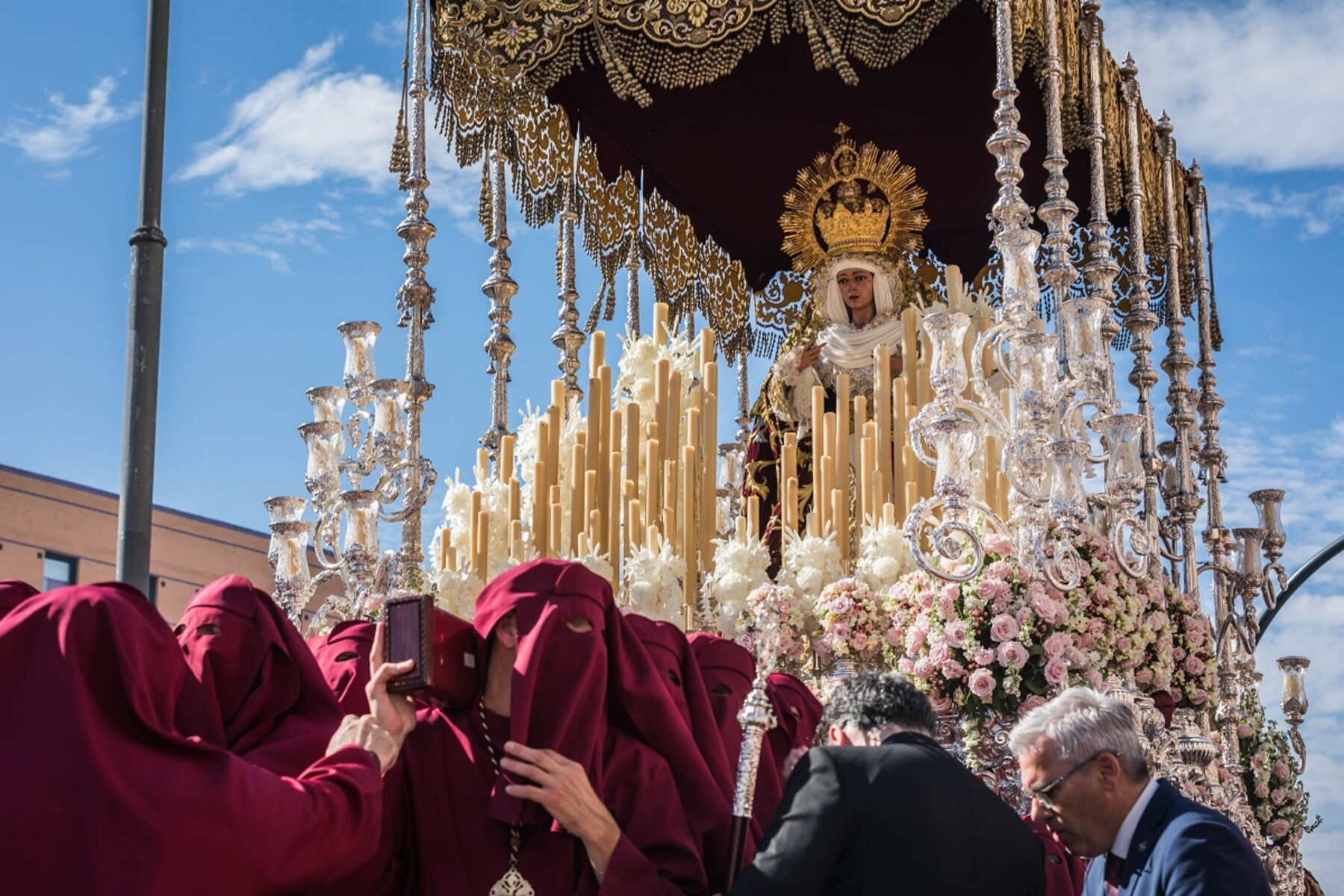
Holy Week processions are a significant and deeply rooted tradition in many countries around the world. This religious observance, which takes place in the week leading up to Easter, commemorates the final days of Jesus Christ’s life, including his crucifixion and resurrection. The processions typically involve participants dressed in traditional attire, carrying religious icons and symbols, and making their way through the streets as a display of faith and devotion. While Holy Week processions can vary in customs and rituals from country to country, they all share a common purpose of honoring the life and sacrifice of Jesus. In this article, we will explore 13 fascinating facts about Holy Week processions, shedding light on the history, traditions, and significance behind this solemn and vibrant religious event.
Key Takeaways:
- Holy Week processions reenact Jesus Christ’s final days, involving elaborate rituals, penitential acts, and symbolic representations, fostering a deep spiritual connection for participants.
- These processions, observed globally, showcase diverse traditions, artistry, and cultural expressions, uniting believers and inviting deep reflection and meditation.
Symbolic Representation
Holy Week processions symbolically reenact the final days of Jesus Christ’s life on Earth. They typically involve different groups representing biblical characters, such as Jesus, Mary, and the disciples.
Elaborate Rituals
The processions feature elaborate rituals and traditions, including carrying statues and icons through the streets, singing hymns, and reciting prayers.
Penitential Nature
Holy Week processions have a penitential nature, with participants engaging in acts of self-denial, fasting, and prayer as a way of seeking forgiveness for sins and expressing repentance.
Display of Devotion
Devotees often walk barefoot, carry crosses, or wear heavy robes as a physical demonstration of their devotion and sacrifice.
Floral Decorations
During Holy Week processions, streets and churches are adorned with intricate floral decorations, symbolizing fertility and rebirth.
Illuminated Streets
Processions often take place in the evening, with the streets illuminated by candlelight or torches, creating a mesmerizing and reverent atmosphere.
Global Tradition
Holy Week processions are observed in many countries around the world, including Spain, the Philippines, Mexico, Italy, and Brazil, each with its unique customs and traditions.
Artistic Expressions
The statues and floats carried during the processions are often masterpieces of art, crafted with meticulous attention to detail and imbued with profound religious symbolism.
Music and Chants
Traditional chants, hymns, and solemn music accompany the processions, enhancing the spiritual experience and evoking deep emotions among participants and spectators.
Pious Brotherhoods
Many Holy Week processions are organized by religious brotherhoods or confraternities, which hold a strong sense of community and facilitate the smooth execution of these events.
Local Traditions
In different regions, Holy Week processions may incorporate local customs and folklore, highlighting the cultural diversity within the larger framework of the Christian tradition.
Ecumenical Gatherings
Holy Week processions often bring together people from various Christian denominations, fostering unity and solidarity among believers.
Reflection and Meditation
Participating in a Holy Week procession offers a time for deep reflection, meditation, and spiritual introspection, inviting individuals to connect with their faith on a profound level.
These 13 facts highlight the significance and diversity of Holy Week processions, showcasing the rich tapestry of beliefs, traditions, and customs surrounding this important religious event.
So if you are ever fortunate enough to witness or participate in a Holy Week procession, take a moment to embrace the atmosphere, appreciate the artistry, and reflect on the profound spiritual journey it represents.
Conclusion
In conclusion, Holy Week processions are rich in history, symbolism, and religious significance. They are important events that bring communities together to commemorate the passion, death, and resurrection of Jesus Christ. With their vibrant displays of faith, devotion, and artistry, these processions take participants and onlookers on a profound spiritual journey.
Whether you participate in a Holy Week procession or simply observe from afar, it is a fascinating and awe-inspiring experience. By understanding the facts and traditions associated with these processions, you can gain a deeper appreciation for the cultural and religious significance they hold.
Lastly, Holy Week processions are an opportunity for introspection, reflection, and renewal. They serve as a reminder of the immense sacrifices made for humanity and the hope that comes with resurrection. So, whether you are a believer or simply curious about different cultural practices, Holy Week processions offer a glimpse into a unique and profound spiritual tradition.
FAQs
1. What is the purpose of Holy Week processions?
The purpose of Holy Week processions is to commemorate the passion, death, and resurrection of Jesus Christ. They provide an opportunity for believers to express their faith, honor religious traditions, and unite in community prayer.
2. Where do Holy Week processions take place?
Holy Week processions take place in various countries around the world, particularly in countries with significant Christian populations. Each region may have its own unique customs and traditions associated with the processions.
3. What is the significance of the religious images carried during Holy Week processions?
The religious images carried during Holy Week processions often depict scenes from the passion, death, and resurrection of Jesus Christ. These images serve as visual representations of the events being commemorated and are considered sacred objects of devotion.
4. Can anyone participate in Holy Week processions?
Yes, Holy Week processions are typically open to anyone who wishes to participate. However, some roles or activities within the processions may be reserved for specific individuals or groups within the community.
5. Do Holy Week processions have any impact on local communities?
Yes, Holy Week processions often have a significant impact on local communities. They can attract visitors, promote cultural heritage, and contribute to the local economy. Additionally, these processions serve as a source of spiritual nourishment and community bonding.
Immerse yourself in the rich tapestry of Holy Week traditions, from the joyous celebrations of Easter to the solemn reflections of Good Friday. Explore the vibrant festivities of Semana Santa, steeped in history and cultural significance. Each event offers a unique glimpse into the heart of faith, inviting you to discover the depths of devotion and the beauty of spiritual expression.
Was this page helpful?
Our commitment to delivering trustworthy and engaging content is at the heart of what we do. Each fact on our site is contributed by real users like you, bringing a wealth of diverse insights and information. To ensure the highest standards of accuracy and reliability, our dedicated editors meticulously review each submission. This process guarantees that the facts we share are not only fascinating but also credible. Trust in our commitment to quality and authenticity as you explore and learn with us.


